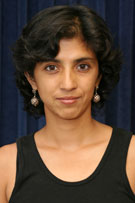Principal Investigator: Rohini Pande, Harvard University
Where state institutions are weak and contracts difficult to enforce, poor households have limited access, if any, to formal financial institutions and social safety nets. As a result, individuals often rely on the generosity of others to cope with periodic shocks to health and income. Thus, generosity is an important determinant of economic development and well-being in poor communities.
Yet despite its pivotal role, there is substantial variation across poor communities (even when holding resources constant) in the level of observed proxies for generosity, such as monetary and non-monetary transfers across households and measures of altruism and trust in reciprocity. This suggests that communities can change in their overall level of generosity and that an important role for public policy may be to enable generosity and improve informal insurance in settings where resources are scarce and institutions are weak.
This project will evaluate the impact of an influential development program—microfinance—on generosity in poor communities. Impact evaluations of policy initiatives or development projects rarely take into account measures of giving, trust, and mutual exchange, even though these are key elements of the overall well-being of individuals and communities. The research on this project will provide rigorous causal evidence on how the introduction of microfinance affects the level of generosity in poor rural communities through exploiting the randomized rollout of a local microfinance provider’s new branches in South India. It will conduct a large-scale household survey before and after microfinance interventions, in order to measure changes in self-reported measures of inter-household acts of generosity (financial transfers, gifts, interest-free loans, lending of durable products, etc.).
Further, this study will test alternative hypotheses for why microfinance might influence generosity. To distinguish between the relative importance of income and social ties as determinants of generous behavior, it will supplement the randomized roll-out of branches with a cross-randomized treatment designed to strengthen social networks. Finally, to provide direct evidence on generous behavior and the degree to which norms of reciprocity underlie generosity, the researchers will supplement data on transfers with an innovative field lottery that elicits households’ willingness to cooperate with others.
The broader contribution of this project includes the construction of a large panel dataset that will provide information on the expressions and role of generosity in a rural developing-country context. Further, it will demonstrate how microfinance can be instrumental in helping societies increase their own welfare by raising levels of generosity and, thereby, provide themselves better informal insurance and credit. The study will, therefore, also generate policy recommendations on how a leading development program, microfinance, can be designed to enhance generosity and risk-sharing arrangements.




